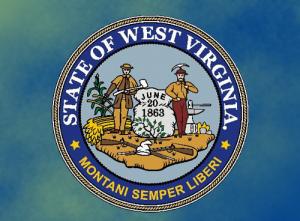West Virginia Tells Water Utility to Take More Proactive Preventative Measures

While acknowledging that a leak of hazardous substances into a source of domestic water supply was not the fault of the local water utility that distributes water from that source, the West Virginia Public Service Commission nevertheless has determined that the utility could do more to mitigate the effects on its supply should a similar accident ever occur again. To that end, the commission adopted a proposed settlement in which the utility, West Virginia-American Water Company (WVAW), committed to examining the propriety of installing an alternative intake valve along the affected waterway and to regularly update and report on its strategies for protecting its supply source(s).
The stipulation came after a three year investigation into the causes of and responses to a dangerous chemical spill from an industrial plant along the Elk River near Charleston, West Virginia in January of 2014. The breach of a storage tank at the industrial facility allowed methylcyclohexane methanol (MCHM) to seep into the river only one mile from WVAW's raw water intake. From there, the MCHM traveled downstream, entered the intake port, and then made its way to a water treatment facility. Eventually, the MCHM was detected, but not before it had already become part of the treated water that was delivered throughout the utility's Kanawha Valley service area.
For days thereafter, and for weeks for some customers, the water was unsafe to consume. The disruption compelled many businesses, restaurants, and schools to shut down, while individuals had to rely on bottled water, some of which was provided, at least in part, by WVAW. Understandably, many consumers were upset about the inconveniences suffered and sought relief from paying their bills during a time when the water being supplied was basically unusable.
Noting the hundreds of thousands of citizens impacted by the incident, and reciting the prolonged interruptions in service that many faced, the commission initiated an inquiry to ascertain whether WVAW's preparedness for such an event and its reaction to the actual spill had been reasonable and appropriate. In the end, the commission agreed with the negotiating parties that while the utility's response had been adequate, it would be prudent for the company to take additional steps to avert a repeat of what happened in 2014.
A primary term in the resulting settlement calls for WVAW to consider installation of a second intake facility, this one located on the Kanawha River rather than the Elk River. According to the parties, the availability of a second intake valve would greatly enhance overall system resiliency and safety. Despite the agreement not actually mandating a second intake, the utility gave every indication that it does, in fact, intend to pursue development of such.
The signatory parties also agreed that WVAW should arrange for additional storage tank capacity in Amandaville, which facilities would be capable of holding up to eight million gallons of pretreated water. That supply could be transported to the Charleston area in case of an emergency in the future. The settlement likewise sets forth new standards for monitoring supply sources, implementing further supply source protections, and improving incident reporting procedures.
In examining the proffered resolution, the commission cautioned that should WVAW elect to proceed with construction of a second intake, the company must first obtain commission approval of the work. However, the commission hinted that such a project was likely to be authorized if it was shown to fall within the scope of ordinary business endeavors.
Nevertheless, the commission also warned the utility that even if the commission consents to an alternative intake initiative, any associated costs cannot be recovered from customers until WVAW receives separate approval from the commission for recognition of those costs in rates. Re Actions of WVAWC in Reacting to the January 9, 2014 Chemical Spill, Case No. 14-0872- W-GI, June 15, 2017 (W.Va.P.S.C.).



